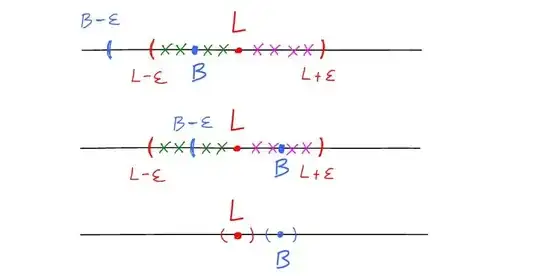This is homework assignment.
Let $(x_n)$ be bounded sequence. Prove following equation
$$\liminf_{n \rightarrow \infty}\, x_n = \max \{ B \in \mathbb{R} : \forall \varepsilon > 0 \{n \in \mathbb{N}: x_n \leq B - \varepsilon\} \; \text{is finite set} \}$$
I don't understand right side of equation, where it says that $\{ n \in \mathbb{N}: x_n \leq B - \varepsilon \}$ is finite set.
I understand concept of $\liminf_{n\rightarrow\infty}$ though.
$\liminf_{n\rightarrow\infty}\; x_n = \lim_{n\rightarrow\infty}\inf\{x_k: k \geq n\}$

I haven't read further yet.
– flowian Oct 27 '18 at 13:56$\liminf_{n\rightarrow\infty}x_n = L \Leftrightarrow ; \forall \varepsilon \exists N\in \mathbb{N}: n \geq N \implies |\inf_{k \geq n}x_k - L| \leq \varepsilon$.
isn't it ?
– flowian Oct 27 '18 at 17:02